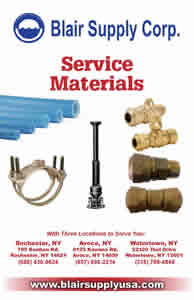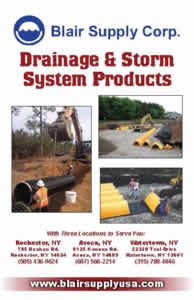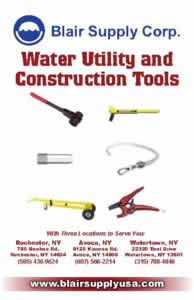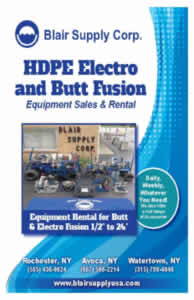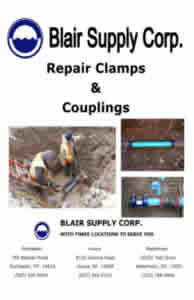Blog
How To Save Time and Money Building a Water and Treatment System
When your facility or municipality are looking at purchasing a water or wastewater treatment system, the first question that usually arises around the board table is what the cost will be. This is not always an easy question to answer since you need to consider both the installation of the system, the ongoing maintenance and how much it is to run on a day-to-day basis.
Water and wastewater treatment systems are extremely complex and each system is usually slightly different based upon the needs of the facility and the governmental regulations. While there are turnkey solutions, most treatment systems need to individualized for different needs which we will explain in further depth. Hiring or seeking the advice of a professional to develop the design, concept and manage the regulatory requirements for your system is the first step to planning your wastewater treatment system.
There are three main questions which will help you determine the cost and efficiency of a water system. They are:
- What are the characterizations of the water in the plant or facility?
- What are the municipal requirements for water discharge from the plant or facility?
- What is the facility or plant used for?
What’s Included In A Basic Wastewater Treatment System?
If the facility or plant treats chemicals or metals some common wastewater treatment system typically include:
- An oil and water separator.
- A series of reactors and chemical additions to adjust the pH and precipitate out metals from the solution.
- A tank to settle suspended solids that are present as a result of treatment.
- A final filtration system to remove all trace amounts of solids.
There are two factors that determine the cost of a wastewater treatment system:
- What is the level of contaminants the facility or plant processes and what is the average monthly discharge limits into the environment?
- What amount of water needs to be processed per day and at what speed?
If you know the answer to these questions it can help you decide on what type of system you need and give you a better sense of the budget.
Of course one of the largest factors that will determine the cost of the water treatment system is the quality of equipment and materials that makeup the actual system.
Here are some important questions to address:
- Does your facility or plant process foods that leave you with wastewater heavy in oils, and grease?
- Does your process include the manufacturing of metals that contaminates the wastewater with suspended solids and metals such as zinc, iron, lead, and nickel?
- Are there high levels of inorganic contaminants that need to be removed?
All these factors will determine what type of wastewater treatment system you need. In general, if your facility runs on a lower water flow rate, you can usually look at a lower overall building cost for your wastewater treatment system. However, if you have a higher flow rate and need to rid of materials quicker, your building cost will naturally be higher.
Water flow rates are always factored into the capital cost of a wastewater treatment system, so it’s important to measure accurately before requesting a quote in order to get an accurate assessment of the building cost.
Other important factors to consider when pricing a wastewater treatment system:
Operating costs: While the majority of the cost with be the building cost, you also need to keep in mind how much a wastewater treatment system will be to run over time. When making a decision, you need to weigh the pros and cons of the initial investment versus maintenance down the line including staff wages and replacement parts. You should develop an operating cost analysis so your company or organization can plan ahead for expenditures such as the day-to-day operations and maintenance. This will help you determine if you should spent a little more money up front for a more efficient system that will save you money in the long run.
Miscellaneous costs: When building a wastewater treatment system, you might want to keep in mind other costs that might arise. For example are there taxes or environmental levies you hadn’t considered. What are the utility costs in your municipality? What type of building permits will you need? It’s important to understand these fees as they can easily sneak up on you and put you over budget.
Check with your local regulators and ask them what type of miscellaneous costs there are. Many times these fees are based upon the volume of water your facility requires and varies based on where you discharge the water.
Environmental Monitoring: Regulations are usually strict and become even more with each new bill and if you ignore or don’t follow these regulations you can get fined heavily. Ongoing environmental monitoring will need to occur. You will need to acquire the correct permits to discharge the water and ensure your plant is approved.
One Last Way to Save Time and Money When You Need to Build a Water and Treatment System
Building and operating a wastewater treatment plant is expensive and requires special consideration. But, with a little planning, forethought and budgeting, there are some ways, to save time and money.
Blair Supply Corporation has been in business since 1958 and is considered one of the top distributors in the water and wastewater industry, participating in over 25 local municipal organizations as well as AWWA, Rural Water Association, WASDA (Water & Sewer Distributors of America), NFIB, and Chamber of Commerce. The company has been in the family for three generations. In the 1940s, the company began with construction of waterlines.
Today, Blair Supply sells and rents specialty equipment such as tapping machines and fusion machines for High Density Polyethylene (HDPE) Products market and continues to remain an innovator and leader in the ever-changing water systems utility construction business.

